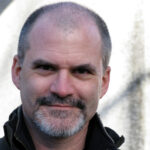 Or, how to master the body of knowledge and be an effective reliability engineer.
Or, how to master the body of knowledge and be an effective reliability engineer.
Yes, there is a lot to know concerning reliability engineering. You should have a firm grasp of statistics, modeling, laboratory and experimental procedures, failure analysis skills, and more.
Likewise, you also need to excellent presentation skills, meeting facilitation, troubleshooting processes, and writing skills. While important for anyone in the working world, it’s critical to be an effective reliability engineer.
In short, the range and depth of the body of knowledge is daunting. And it’s fun, too. No shortage of stuff to learn and master, and no lack of options for specialization or focus.
How to Get Started
First, you have already gotten started. Take an interest is how to start and what to learn. That really is essential, as you will need to want to learn.
Second, you are on the right site to get started. The mission of the Accendo Reliability site is to provide you with all the information and resources to learn every aspect of reliability engineering.
There are close to 200 articles with another couple hundred planned for this year alone. There are resource listings, ebooks, webinar recordings for members of the site. Plus, there are courses.
A great course to start with is the 14 Ways to Acquire Reliability Engineering Knowledge. It’s free and steps you through the many ways to find, learn, and master reliability engineering information.
For specific topics that a course of a conference may address check the reliability calendar. It is one calendar that attempts to list all public courses, conferences, seminars, webinars, workshops, and meetings of interest to reliability professionals.
And finally, you can ask. Leave a comment and let us know what you’re seeking. Most likely we can help.
What Topics to Learn First
As you may suspect this depends on what you already know and what you need to know.
Here I suggest you review the article, Getting Started as a New Reliability Engineer, and focus your learning on what you need to learn now.
Balance the immediate needs with building a foundation to build upon going forward. For example, if you now you need to improve your statistics skills, enroll in a course (EDX and other online platforms regularly offer statistics and data analysis courses), and set a schedule to focus on building your knowledge.